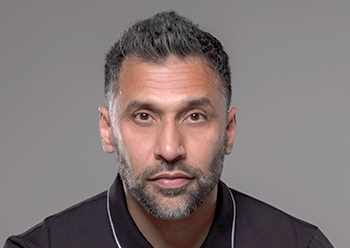.jpg)
 Rashid Ali
Rashid Ali
UK-based Exarta is on a mission to build a leading, unrivaled Web3 portal for e-commerce and transactional technology, offering a truly unique experience that takes their Web 3.0 Metaverse to the next level.
Based on Unreal Engine, it offers high-definition graphics and huge incentives for users and merchants. The Exarta Metaverse is a place where the real world meets the virtual world offering users social interaction with gaming, virtual retail commerce, NFT, education facilities and medical applications - all powered by their very own proprietary AI / Machine-Learning Engine and data-driven and blockchain technology.
Rashid Ali is the co-founder and CEO of Exarta. During the Covid pandemic lock-down, he noticed a huge shift from high street to online and wanted to help retailers seamlessly transition from Web 2.0 to Web 3.0. So, Exarta was born.
In an exclusive interview with Gulf Industry, Ali answers crucial questions about blockchain technology and its evolution and future in the Middle East region. Excerpts:
How’s the blockchain industry evolving in the Middle East region?
In the Middle East and North Africa region, blockchain technology is growing at a rapid pace compared to the rest of the world. I would say that the West is playing catch up, as Europe and the US are just starting to put regulations in place for it but countries like Bahrain, Saudi Arabia, and the United Arab Emirates (UAE) have been crypto and Web3 hotspots for a while now. The Saudi Vision 2030 initiative outlines this goal very clearly: digital transformation through the use of IoT, blockchain, smart cities, Ai, VR and so much more. The government is very open to innovation, and that’s something we can’t say for the West as of right now. We’ll see how things evolve from here!
Is blockchain technology revolutionary or overhyped? Or both?
Blockchain will change everything. I don’t believe it’s overhyped, although the word “revolutionary” is thrown around a lot. I really think this time it’s appropriate. Once we get to the point of mass adoption, things will shift so rapidly. You can already see green shoots within different industries, with real and concrete use cases, and I really believe it will touch everything we do in life.
Will it become the solution to securing trust in global trade?
That’s what will be most impacted: it will provide global trade with the kind of security and trust that I really think we haven’t seen before. It’s undeniable proof of authenticity on items, complete and transparent supply chain information that cannot be altered or changed, validity of transactions. You name it, blockchain will disrupt it. And that’s maybe the one major missing piece when it comes to establishing and maintaining trust in global trade.
Can it be a success in use cases such as manufacturing or global trading or supply chain management?
That’s exactly why it will provide trust in global trade. Once you simplify and verify supply chain management, you have an easier path to trading. If you improve the way manufacturing works, you cut costs and admin time, you immediately improve the whole chain. One thing impacts all the others, and blockchain can benefit each step of the process.
What will be the rate of blockchain transactions in the coming years?
Adoption is still relatively early, but it’s starting to become a hot topic in ways it just wasn’t four or five years ago. I believe the key to massive adoption will be getting organisations to see its value, and then everything will evolve from there. Then, it will become the de-facto standard for nearly every real world use case.
What are the most pressing challenges in this technology and how to transform these challenges into opportunities?
The most pressing challenge is education. With any new technology, the more tech savvy organisations will see the value, while others will think of it as some sort of gimmick. We need widespread and urgent education around blockchain technology. We are starting to see this in some places, and in some organisations, which is very promising. However, the coming years will really drive mass adoption and decide the course of our future. It’s really exciting to see!



